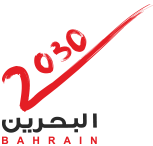NEWS
Tweets of the Political Elite Focus on Bahrain as a Democratic Country
“WhatsApp” is Highly Used by the Members of the Shura and Representatives Councils… a Study at UoB states:
Tweets of the Political Elite Focus on Bahrain as a Democratic Country
A scientific study at the University of Bahrain (UoB) confirmed that the majority of political elites believe in the great influence of social media in shaping public opinion towards the mental image of the Kingdom of Bahrain and that the elite’s tweets focused on Bahrain as a “democratic country” and a “sponsor of citizens.”
The study urged political elites to further activate their accounts in social media, as some of them created accounts and have not posted anything on their pages for a long time.
The student in the master’s program in media at the College of Arts at the University, Maryam Hassan Al-Mehmid, submitted the study as one of the requirements for obtaining a master’s degree in media, and the thesis was recently scientifically discussed through visual communication.
Al-Mehmid’s thesis was entitled “The Image of the Kingdom of Bahrain Through the Political Elites in Social Media – An Applied Study”, and it examined a sample of 28 individuals, with the accounts of 13 members of the Shura Council and 15 members of the Council of Representatives during the period from (16 October 2016) to (20 July 2017).
The researcher employed two tools to collect data: a content analysis of the accounts of the political elites on Twitter, in the indicated period, in addition to conducting scientific interviews. As the researcher analyzed 515 tweets on Twitter from the accounts of the political elites, with 233 tweets by members of the Shura Council and 282 tweets by the members of the Council of Representatives.
On the importance of her study, Al-Mehmid pointed out that the study contributes to providing a realistic vision of Bahrain’s image on social media, noting that “The thesis is the first of its kind to monitor Bahrain’s perceived image from social media, as it is a new idea that has not previously been discussed and researched.”
The study showed that the most characteristic features of Bahrain’s image, which were focused on through the political elite’s tweets on Twitter, were “a democratic country” as 25% of the sample, and “citizen care” came in second place, while “safety” came in third place, and that most of the templates used by the political elite in their accounts through social media are “news text” with 64.3%, followed by “images” in second place.
Also, it found that the most used social media by the political elite to form the image of Bahrain for the public is “WhatsApp” with 85.7%, followed by “Instagram” in second place with 75%, and Twitter came in third place with 71.4%, then “e-mail” in the fourth place with 57.1%, and lastly “Facebook and YouTube”.
The findings showed that the topics of the political elite’s tweets on Twitter were mostly concentrated in publishing the news of the Shura and Representatives Councils, followed by the exchange of personal interests with followers.
Furthermore, the study found that 43.9% of the tweets of the political elite on Twitter were re-tweets, and 37.3% of them were the personal opinions of the members of the Council of Representatives/ Shura Council, while 18.8% of the tweets of the political elite on Twitter were quotes.
The study showed a discrepancy in the opinions of the sample of the political elite regarding the sources that contribute to the formation of the mental image of the Kingdom of Bahrain, as 32.1% of them believe in the need to build an integrated government communication system to form a mental image of the Kingdom of Bahrain, and 25% of them believe in the need to rely on direct sources through the interaction of the individual with others.
The thesis recommended the enactment of laws that obligate members of the Shura and Representatives Councils, upon joining the two councils, to create one or more official accounts on the most popular and used social media such as Twitter and Instagram, as the public is allowed to choose the media they prefer, in addition to the personal accounts they have, to focus on disseminating information and increasing the public’s knowledge on the one hand and taking into account the public’s use of multiple types of social media, not only one.
Moreover, it called for holding training courses or workshops in institutes specialized in social media and political science for the political elites, concerned with the uses of social media and the importance it poses at present. The study suggested deducting ten minutes from the break time between sessions for communication between the political elites (the study sample) and the public, to urge the political elites in society to intensify their use of social media.











